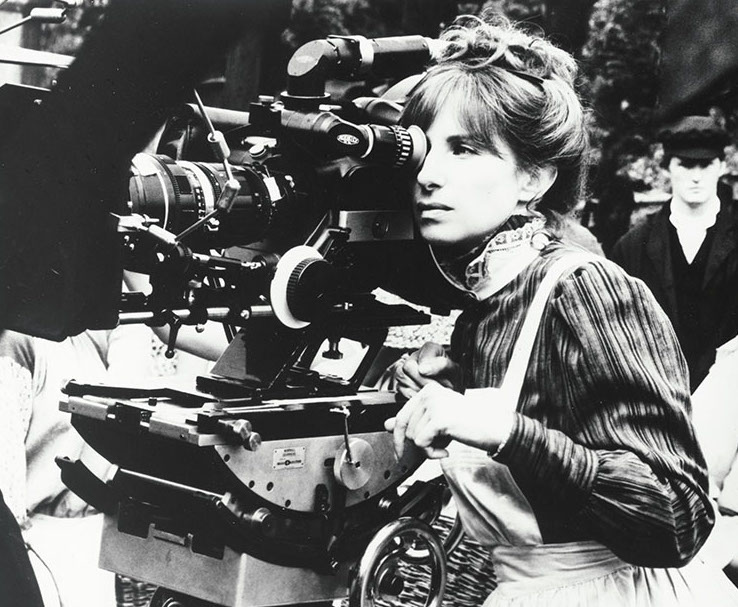I started acting before I can even really remember. From preschool through high school, I lived for the stage — my life consisted of rehearsals, scripts, memorizing lines, and opening nights. But I didn’t start to understand the gravity of acting — of conveying truths — until it came time to apply to colleges.
As a senior in high school who was the lead in all our plays, it seemed obvious to me that I would go to school to pursue acting. I made this decision early on, being the Type A woman I am, and began studying with an acting coach in preparation for college auditions. Throughout the two-and-a-half-year training process, however, I fell into an internal conflict.
When studying various content for my auditions, I began to notice a pattern: I was only being exposed to Jewish characters as my coach predominately selected Jewish roles for me to perform. Though I would express interest in other stories and various characters with whom I strongly identified, there always seemed to be a push for me to really hone in on my Judaism.
Soon I had my list of pieces to perform in auditions, all from plays like The Last Night at Ballyhoo, Bad Jews, and The Dybbuk. I pulled monologues from each for my auditions, though I struggled to connect with them. At this point in my life and my Jewish experience, I was still figuring out what kind of Jewish woman I wanted to be. Did I want to be a stereotypical, Brooklyn accented gossip because that’s what I saw on TV? Did I want to be shomer Shabbat and dedicate my life to my religion? Did I want to be completely reform and limit the amount of Jewish interference in my life? I didn’t know what I wanted my real life to look like, yet this identity I had not yet accepted was being shoved at me through my acting career.
Although I didn’t yet fully understand my unique existence as a Jewish woman, I knew there was more to me than that. Being a Jewish woman was not my only truth, but it seemed to be what I’d been convinced of throughout the audition process. My surroundings were spinning around me, reminding me with every line spoken that the only character I could accurately portray was a Jewish one — that the only tribe I would ever be a member of was the Jewish tribe. I would read other plays that had no direct connection to Judaism, discuss them and feel confident in my ability to articulate this character’s truth. Eventually, however, I would be talked out of it, pointed instead in the direction of a, let’s say, “Jewish looking” character who hated the way she looked.
Being a senior in high school does not lend itself well to making all the major life decisions expected of you at that age. I had been forced to entirely embrace this role of Jewish woman that I hadn’t dug into since my bat mitzvah. And sure, I was proud to be Jewish, and yes, I wanted to stay in the religion, and I certainly enjoyed observing major holidays. But I did not know enough, however, to be sure that I wanted “Jewish” to be my title as an actor and as a young woman. Judaism became a character description, and acting became a flashing neon light to remind me that I had no idea who I wanted to be.
After going through 14 college auditions and 14 college rejections, I entered a period of self reflection and questioning. What the hell am I doing? Do I even want to be an actor? Why does this feel like a puzzle piece that doesn’t quite fit me? In the middle of that draining crisis, I realized theater’s objective of truth. And I realized that acting wasn’t my truth. That going through that hell of a process — reading monologue after monologue, feeling disconnected, out of body, and uncomfortable with my own voice — was essential to discovering my truth.
My story does have a happy ending, thankfully. I am currently at a wonderful school pursuing theatre, but in an entirely different way than I’d ever imagined. Now, I am directing, producing, doing dramaturgical work, and writing. I have never felt more connected and in tune with my art than I do when I am in the rehearsal room as a director. I don’t feel like I am constricted to reciting only certain words or portraying only certain kinds of people, I feel free.
Funnily enough, I’ve realized this is also true for my identity as a Jewish woman. I feel my feet starting to firmly plant themselves in the soil of Judaism — my version of Judaism. My version, which includes lighting candles on Shabbat when I remember to, wearing my favorite ring from Jerusalem, celebrating the High Holidays with my family, and feeling a sense of sturdiness within my soul knowing that Judaism is a consistent part of my life.
I am proud to be my own version of a Jewish woman and an artist. I am proud to be nuanced, flawed, and unique. “Jewish” is not a character description, and I am no longer complacent with the idea that one identity can determine a person’s entire truth.
Header image: Barbra Streisand directing Yentl, accessed via Pinterest.



